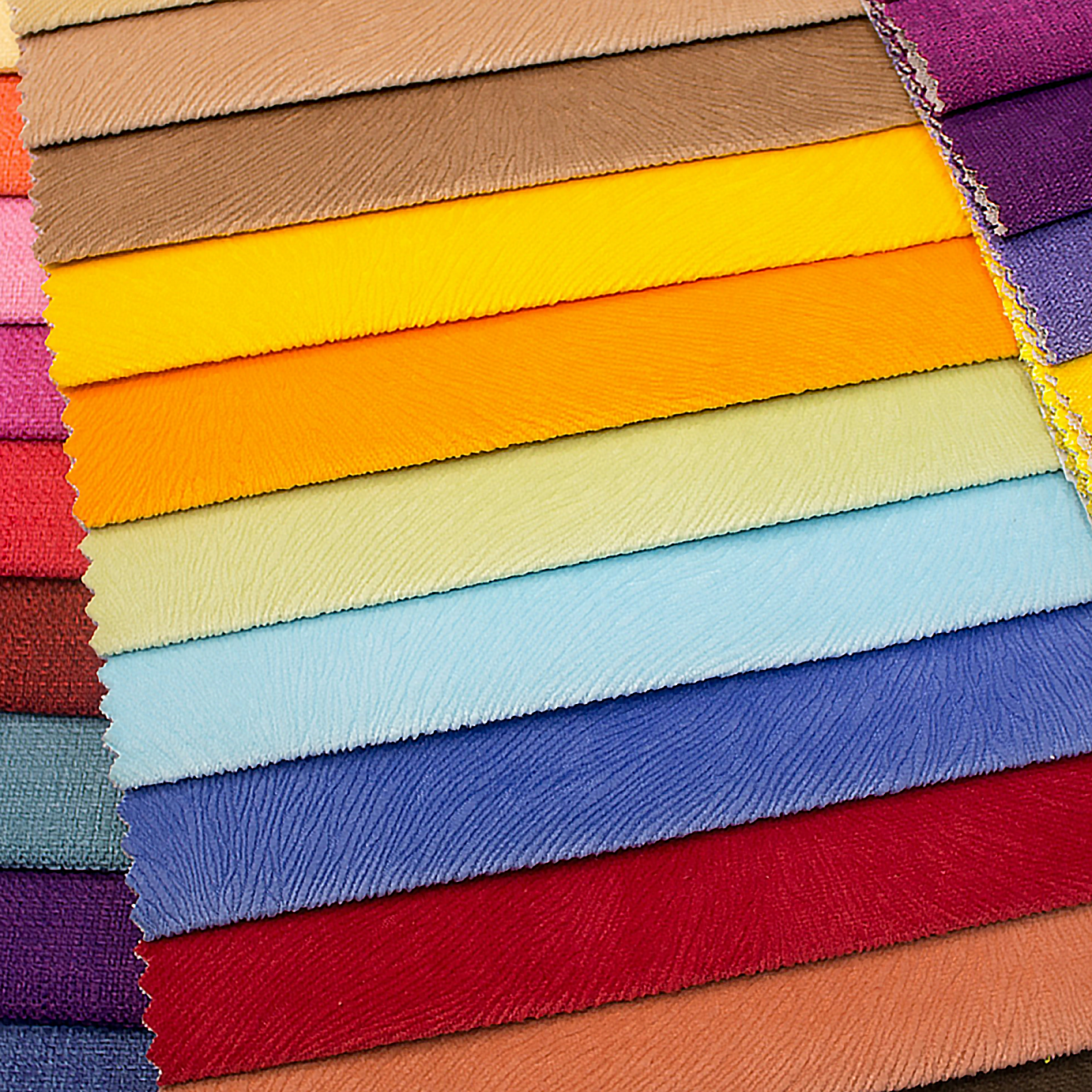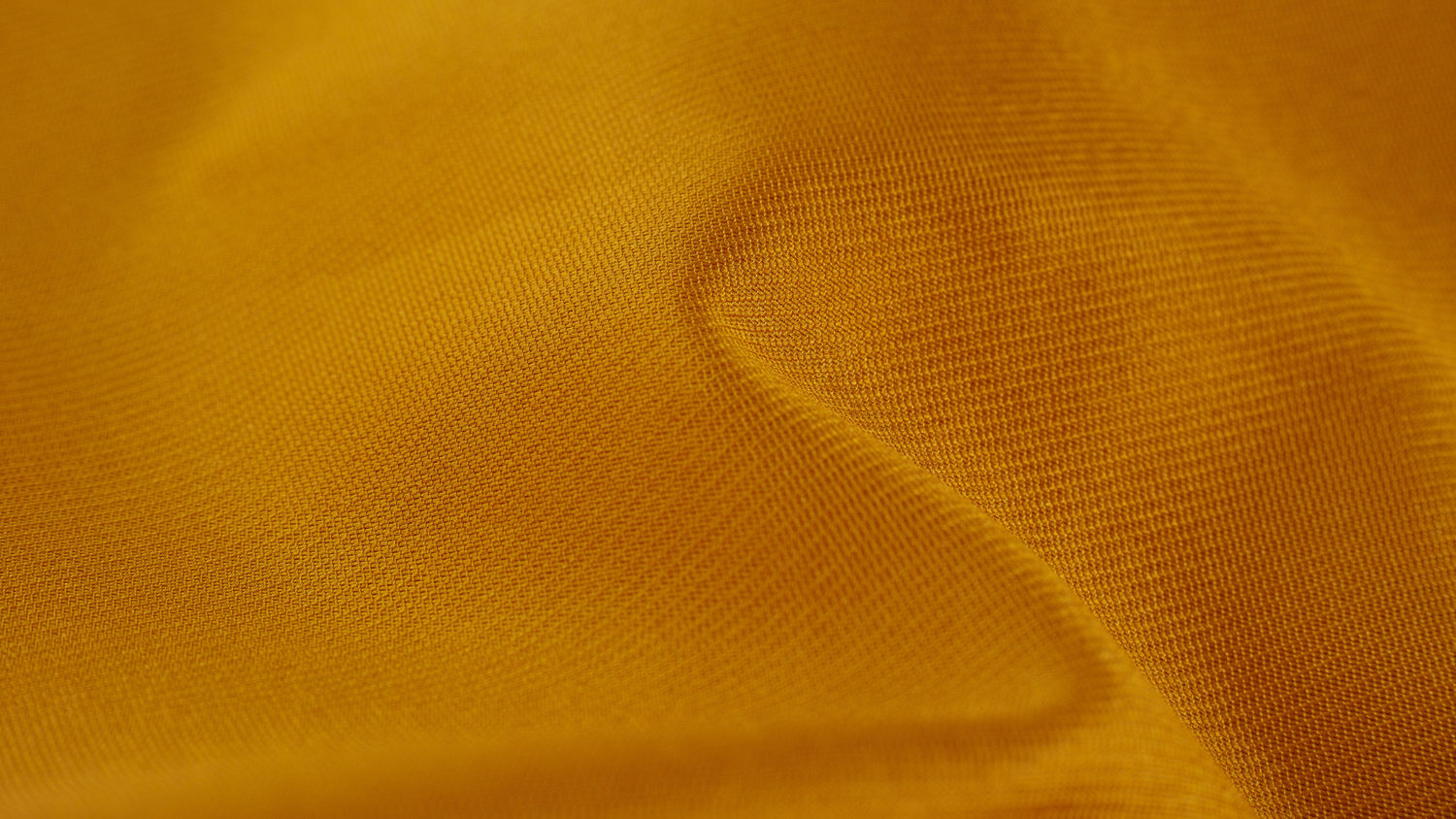What is cotton poplin fabric?
Cotton poplin is a type of woven fabric known for its durability, smooth texture, and versatility. It is made from cotton fibers and is characterized by its tight weave, resulting in a slightly stiff yet soft and smooth finish. Poplin fabric typically has a plain weave construction, where the horizontal and vertical threads intersect in a regular pattern. Learn all about cotton poplin in our helpful guide!
Key characteristics of cotton poplin fabric include:
- Smooth Texture. Cotton poplin has a notably smooth and silky texture that feels pleasant against the skin.
- Strength and Durability. The tight weave of poplin makes it a strong and durable fabric, suitable for various applications.
- Breathability. Due to its cotton composition and plain weave structure, poplin is generally breathable and comfortable to wear, especially in warm weather.
- Crisp Appearance. Poplin holds its shape well and has a slightly crisp appearance, which can give garments a polished and professional look.
- Versatility. Poplin fabric is versatile and can be used for a wide range of clothing items, including shirts, dresses, skirts, blouses, trousers, and more. It is also sometimes used for bedding and home decor items.
- Easy to Care For. Cotton poplin fabric is relatively easy to care for and can often be machine washed and ironed.
- Variety of Prints and Colors. Poplin is available in a variety of colors and prints, making it suitable for different styles and design preferences.
- Uses in Tailoring. Due to its crispness and structure, poplin is a popular choice for dress shirts, formal wear, and other tailored garments.
Cotton poplin fabric is commonly used in the fashion industry and is a favorite for creating both casual and more formal clothing items. It strikes a balance between comfort, durability, and a polished appearance, making it a sought-after fabric for various applications.
What is the difference between cotton and cotton poplin?
Cotton and cotton poplin are related terms, with cotton referring to the natural fiber derived from the cotton plant and cotton poplin being a specific type of fabric made from cotton fibers. Here's a breakdown of the differences between the two:
- Fiber vs. Fabric:
- Cotton: Cotton is a natural plant-based fiber that grows around the seeds of the cotton plant. It is known for its softness, breathability, and comfort. Cotton fibers are harvested, processed, and then spun into yarns to create various types of fabrics.
- Cotton Poplin: Cotton poplin is a specific type of fabric woven from cotton fibers. It has a distinctive tight weave pattern and smooth texture. While it is made from cotton, the term "cotton poplin" refers to the fabric's unique characteristics and construction rather than the raw cotton fiber itself.
- Weave and Texture:
- Cotton: Cotton fibers can be woven into various types of fabrics, each with its own weave and texture. For example, cotton can be woven into fabrics like jersey, twill, denim, and more.
- Cotton Poplin: Cotton poplin has a particular weave known as a plain weave, which is characterized by an even and regular crisscross pattern of threads. This gives poplin its characteristic smooth and slightly crisp texture.
- Characteristics and Uses:
- Cotton: Cotton fabrics, depending on their weave and processing, can have a range of characteristics. They are often prized for their softness, breathability, and versatility. Cotton fabrics are used for a wide array of clothing and textile products.
- Cotton Poplin: Cotton poplin is specifically known for its durability, smoothness, and slightly stiff texture. It is often used for making dress shirts, blouses, dresses, skirts, and other tailored clothing items where a polished appearance is desired.
- Applications:
- Cotton: Cotton fibers can be used to create a diverse range of fabrics, from casual to formal, lightweight to heavy.
- Cotton Poplin: Cotton poplin is particularly favored for garments where a balance between structure and comfort is important. Its crispness and smooth finish make it suitable for garments requiring a more polished look, such as professional attire or tailored clothing.
In summary, cotton is the natural fiber derived from the cotton plant, while cotton poplin is a type of fabric woven from cotton fibers using a plain weave pattern. Cotton poplin is prized for its specific characteristics, making it a popular choice for certain types of clothing.
To learn more about the uses and benefits of cotton, read more on our blog.

Zelouf cotton poplin stretch print in yellow/orange
Does cotton poplin fabric feel scratchy?
Cotton poplin fabric is generally not considered scratchy. In fact, it is known for its smooth and soft texture. Poplin fabric is woven with a plain weave pattern, which creates a tight and even crisscross of threads. This weaving technique contributes to its smooth and slightly crisp feel, making it comfortable to wear against the skin.
The smoothness and softness of cotton poplin fabric can vary based on factors such as the quality of the cotton used, the thread count, and the finishing processes during manufacturing. In most cases, however, cotton poplin fabric is chosen for its pleasant tactile qualities, and it is often used in garments that require a balance between structure and comfort, such as dress shirts, blouses, and other tailored clothing items.
If you find a particular cotton poplin fabric to be scratchy, it could be due to factors such as low-quality fibers or a lack of proper finishing. However, in general, cotton poplin fabric is not known for causing discomfort or irritation against the skin.
Is cotton poplin fabric thin or thick
Cotton poplin fabric can vary in thickness depending on factors such as the weight of the yarn used, the thread count, and the specific manufacturing processes. However, in general terms, cotton poplin fabric is considered to be a medium-weight fabric.
Compared to some other cotton weaves, like voile or batiste, cotton poplin fabric is typically denser and has a slightly heavier feel. It is often chosen for its balance between durability, structure, and comfort. While it is not as thick as heavy fabrics like denim or canvas, it is also not as lightweight as some delicate fabrics like chiffon.
Cotton poplin fabric's medium-weight nature makes it suitable for a variety of applications, from dress shirts and blouses to dresses, skirts, and lightweight jackets. It offers enough substance to provide structure to garments while maintaining a comfortable and breathable feel. Keep in mind that the exact thickness can vary between different brands, manufacturers, and specific types of cotton poplin fabric.
Does cotton poplin fabric shrink?
Yes, like many cotton fabrics, cotton poplin has the potential to shrink when exposed to heat and moisture, especially if it has not been pre-shrunk or if it undergoes improper care. Cotton fibers have a natural tendency to contract when exposed to these conditions. However, the extent of shrinkage can vary based on several factors:
- Fabric Quality: Higher quality cotton poplin fabrics may have been pre-shrunk or have undergone special treatments to minimize shrinkage.
- Weave Density: The tight plain weave of poplin may make it less prone to shrinkage compared to looser weaves.
- Finishing Processes: The way the fabric was finished during manufacturing can affect its susceptibility to shrinkage.
To minimize shrinkage and maintain the size of your cotton poplin garments:
- Always follow the care instructions provided by the manufacturer on the garment's label.
- Wash the fabric in cold water or at a temperature recommended on the care label.
- Avoid using high heat settings when drying. Line drying or using a low heat setting in a dryer can help prevent excessive shrinkage.
- If you're concerned about shrinkage, you can consider pre-washing the fabric before sewing or wearing the garment. This can help remove any residual sizing and allow the fabric to shrink before you start working with it.
Keep in mind that while some shrinkage is possible, it might not be drastic if you follow proper care instructions and handle the fabric with care.





